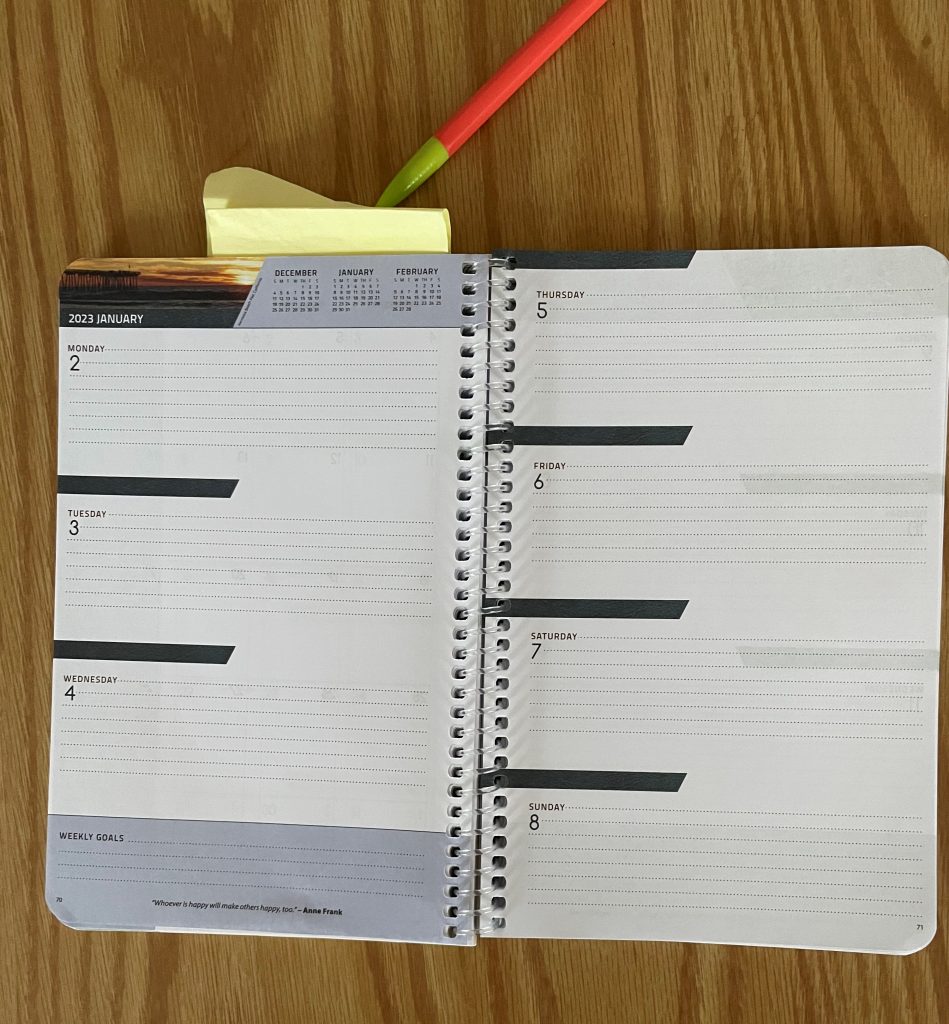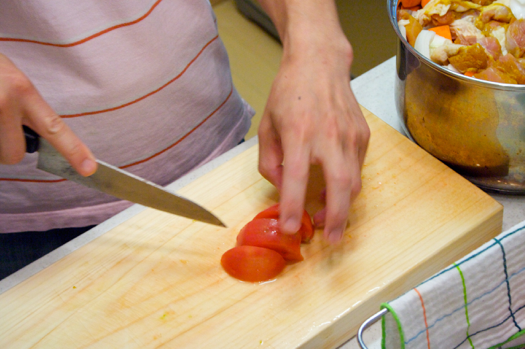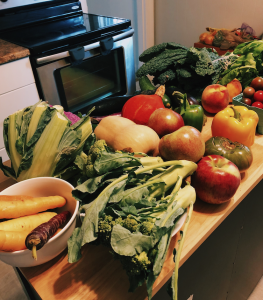Maitreyi Kale, Human Factors Engineering M.S. Candiate

I firmly believe that acquiring books and reading books are two different and perfectly valid hobbies. Whichever one you’re after, the unfortunate reality of being broke college students is that we probably cannot afford to shell out hundreds of dollars at bookstores or on Audible to build the personal library of our dreams. Thankfully, there’s plenty of free or low-cost sources of books as a college student at Tufts/in Boston, and in this post, I’m going to introduce you to some of my favorite ones.
1. School Libraries
As a student, it’s easy to forget that Tisch Library and Lilly Music Library (and the SMFA Library in Boston) are not just great study spots but also, well, libraries, i.e., excellent sources of free books! Use JumboSearch to look at the library catalog or check books out in person. A fun and less well-known hack is that if Tisch doesn’t have a book you want to read, you can actually recommend a purchase, and I promise they want you to use this resource!
2. Identity Centers
The Women’s Center and LGBT Center on the Medford/Somerville campus have mini libraries with books on topics relating to women, gender, sexuality, and more. While these collections definitely fall within a more a niche theme, they’re an underrated source of new reads from educational, to self-help, to cute queer romance books and much more for the Tufts community.
3. Public Libraries
When I bring up this resource, people often groan because they think getting a library card is a long-complicated process that involves visiting the library in person and talking to human beings, but… guess what! There are other ways! As a resident of Massachusetts, you can sign up for a free eCard at Boston Public Library. This eCard gives you access to BPL’s massive collection of ebooks and audiobooks, which you can access conveniently through an app called Libby (see item 4). Of course, you can visit the library by taking the T to Copley Square or Back Bay and acquire a physical library card and borrow resources like books, DVDs, museum passes, etc. in person.
Another library to keep on your radar is the newly renovated Somerville Public Library on College Ave, which is super close to campus. On your next walk to Davis Square, stop by Somerville Public Library with some form of Photo ID and proof of address and ask to sign up for a library card at the front desk. Fill out a quick form and walk away with a library card that allows you to borrow not only from SPL, but also from any other library that is part of the Minuteman Library Network! You can sign up for a temporary card online, but you must go in person to obtain a physical library card. Alternatively, you can visit Medford Public Library in Medford Square, which is also within the Minuteman Library Network.
4. Libby
This is by far my personal favorite resource (when combined with the one above), and I still cannot quite believe it’s real. Download the app Libby on your smartphone or tablet, enter a library card number, and instantly acquire the ability to (virtually) borrow from your chosen library. Libby makes it easier to find your next read through features like filters, curated lists, and smart tags, that will help you navigate Boston Public Library’s extensive collection of ebooks and audiobooks! You can listen to borrowed audiobooks on the app, and ebooks can be read directly on the app or sent to your Kindle. In true library fashion, you do have to wait to borrow books sometimes and your (extendable) loan ends after 2 weeks, but if you’re indecisive like me, you’ll appreciate this natural narrowing down of options to choose from. I also always look out for the “Lucky Day” shelf, which lets you skip the line and borrow from a list of fairly popular books instantly.
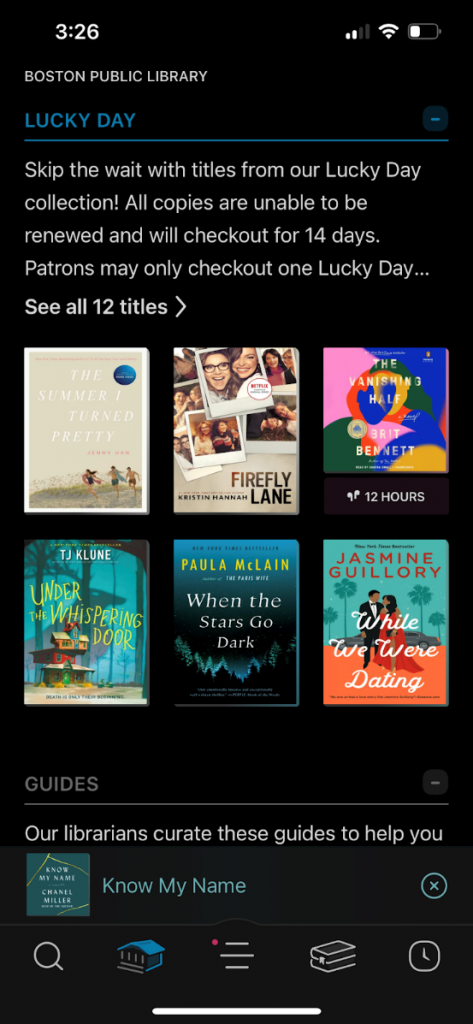
5. Little Free Libraries
If you’ve walked around the Medford/Somerville area, you’ve probably come across one of these cute tiny wooden house-shaped bookshelves on sidewalks. The concept is simple: take a book or leave one! I always feel like a winner when I find a free copy of a book that’s on my to-read list in a Little Free Library, but also equally so when I discover treasures, I might not have come across otherwise. Sometimes the books in LFLs have little annotations or dedications penned by previous owners, which always add a bit of meaningful magic to the reading experience. Find Little Free Libraries near you!
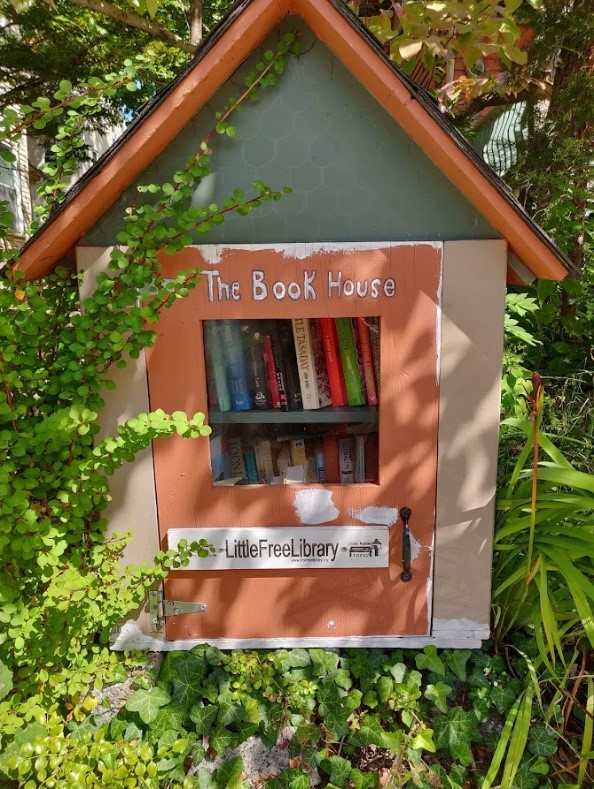
6. Used Bookstores
This section could be its own blog post, really, because there are several used or secondhand bookstores in the Greater Boston Area! You can also sell copies you own in exchange for bookstore credit that you can then use to purchase your next read. I’d recommend googling used bookstores in the area and planning a visit (maybe with friends!), but here’s some of the popular stores: The Book Rack, Raven Used Books, Book Wonder, Brattle Book Shop, Brookline Booksmith, Harvard Bookstore, More Than Words, etc.
7. Community
I know Facebook feels like old news, but if you’re a college student, you probably use your account to access Facebook Groups, Pages, and Events specific to your school. If you’re looking for a particular book, consider posting an in search of, or “ISO” post on a Facebook group. Chances are, someone will comment or reach out saying they have the book you want, and maybe you’ll even make a new friend to discuss that book with! If you live on or around campus, I’d also recommend joining either Everything is Free Medford or Everything is Free Somerville, because these Facebook Groups are excellent for ISO posts like these and will significantly expand the reach of your request beyond just the Tufts community.
With the help of the above resources and more, I’ve managed to expand my personal collection of books, broaden my reading taste, and do some serious damage to my to-read list without emptying my wallet in the past three years, and I hope they help you achieve your bookish goals too!


